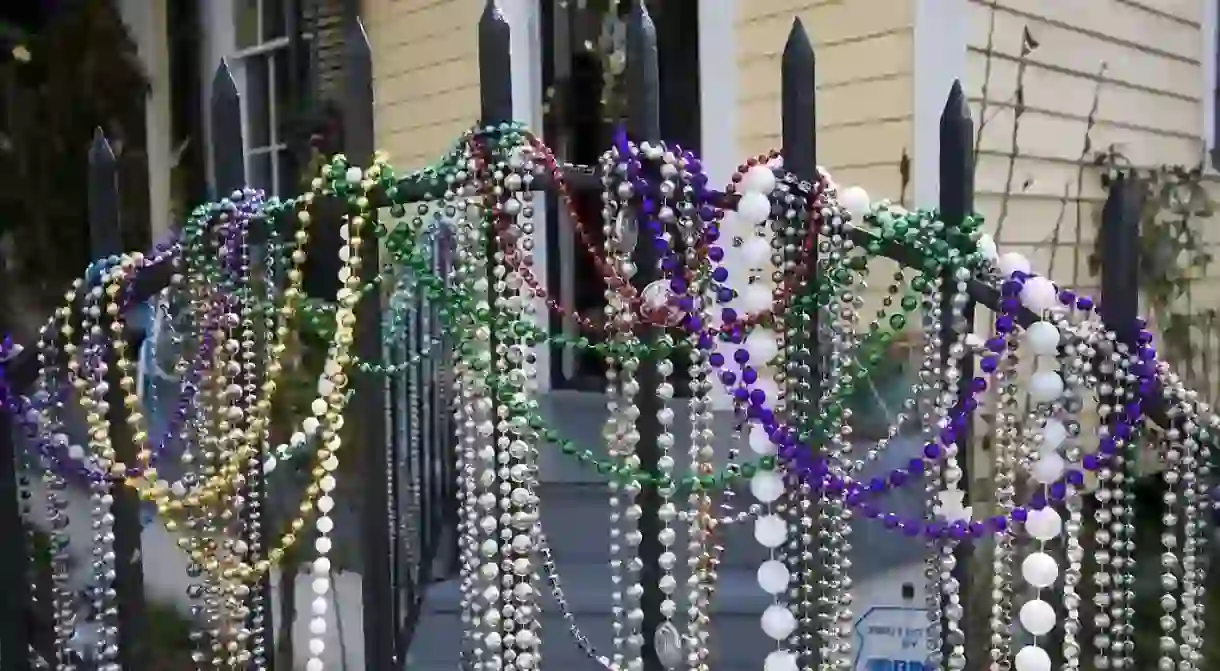10 Habits You Can’t Help Picking Up If You Live in New Orleans

New Orleans has an infectious culture that can easily inspire a smattering of quirky habits that only people who’ve lived here will truly understand. Live in or visit the Big Easy enough, and the chances are that you’ll acquire one or more of these 10 habits too.
Asking for to-go cups when leaving bars
The magic of life with to-go cups cannot be overstated. To-go cups—and being able to transport and consume alcoholic beverages in public—revolutionize familiar partying concepts such as pre-gaming, day drinking, last call, walks home from the bar, and, of course, “just one last drink” in ways only natives and frequent visitors understand. Once you get used to being able to tote your half-full drink from bar to bar (or at least on the walk between them), it’s one of the most difficult habits to leave behind.

Saying “y’all” instead of “you all” or “you guys”
Even if you grew up never once hearing or saying the word “y’all,” this quintessential facet of Southern vernacular can still easily creep into your own vocabulary over time. After you hear a term enough times, see the funny looks in response to saying “you guys” in front of locals, and realize how much easier it really is to say it, “y’all” will become second nature in time.
Assuming restaurants will always provide an assortment of hot sauces
Barring some of the fanciest joints, you’ll be hard-pressed to find many restaurants in New Orleans that don’t offer an assortment of hot sauces along with your usual tabletop seasonings and condiments. At the very least, you can usually find classics such as Tabasco or Crystal, the superiority of which residents frequently debate. But sometimes restaurants may create their own house-made hot sauces or even carry Tony Chachere’s Creole seasoning, a.k.a.. Tony’s, on the table.
Being normalized to random second lines or other events blocking off streets and traffic
While many larger parades or second lines, such as in honor of local or national celebrities, are often public knowledge, many smaller or private second lines and parades may not be. This can cause surprise street closures for indeterminable amounts of time, which often forces residents to learn their backways and alternate routes for dodging these types of events. Once you’ve been stuck for hours behind a parade once, you’ll never again forget to learn alternate routes to your most common destinations.

Getting used to smelling jasmine on one block and putrid unknown on the next
It’s one thing to enjoy a sudden wisp of jasmine scent gusting past you and then dissipating to clear air, and another to have that delicious jasmine scent immediately sour to some unidentifiable putrid replacement seconds later. Depending on the time of day or year and where you are, however, this type of occurrence is not all that uncommon, especially in the most tourist-dominated areas. Once you learn to stomach the array of strong smells that New Orleans has to offer—pleasant or otherwise—you can tolerate other odors much better.
Asking people, “Where y’at?” instead of “Where are you?”
Like “y’all,” “where y’at” simply rolls off the tongue more easily than “Where are you?” And New Orleanians have never been ones to shy away from a more laissez-faire approach to just about anything, including language. New Orleans and Southern phrases are addictive and easily adoptable in part for that very reason of ease, and “Where y’at?” is arguably one of the most highly exported.
Planning for your next meal while eating your current meal
Because New Orleans’ culture revolves so much around food, you may notice when dining with locals that they are often discussing past meals or other upcoming meals while they are still eating the one in front of them. Don’t doubt that they aren’t living in the moment and enjoying their current fare, though; food, in general, is just that central to the cultural landscape and, thus, is a frequent topic of even mealtime conversation.
Looking for the streetcar when crossing certain streets
Streetcars run down several of New Orleans’ major thoroughfares, and they are an additional set of vehicles to watch out for whenever you have to drive or walk across them. After a while, especially if you live, work, or play near one of these major thoroughfares, you may find yourself checking for streetcars needlessly out of habit. As the saying goes, it’s better to be safe than sorry.

Asking where someone went to school—and meaning high school
This habit is another phenomenon among New Orleans locals—when they ask someone where they went to school, they usually mean high school rather than college, which is confusing for some visitors. Traditionally, when one New Orleanian meets another, they ask this question as an unspoken rite of passage in their relationship—usually to determine whether any friends or family members may be mutual acquaintances through high school connections. Hear it enough times, and you may find yourself doing the same.
Eating king cake for all four meals of the day during Carnival season
Fight a New Orleanian on it—king cake is an appropriate dish for any meal, anytime. The word “cake” may seem to relegate this famous Mardi Gras dish to the dessert category. However, you’ll come to understand king cake’s true versatility once you attend enough work parties and daytime parades or have enough post-parade hangovers with only king cake sitting around the next morning.














